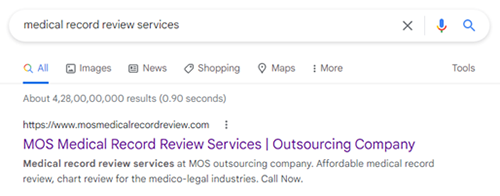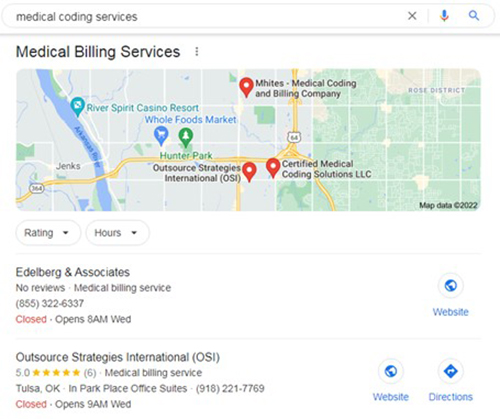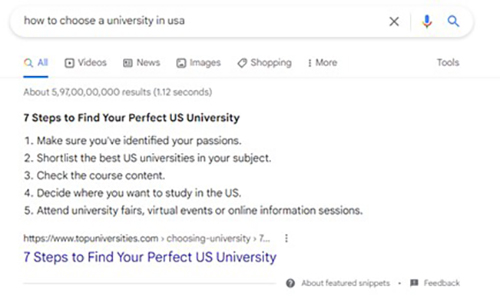Keywords form the foundation of any online marketing campaign. Digital marketing cannot be dissociated from customer-centric marketing strategy, and keywords play a major role in targeting the audience or potential customers. To optimize the content, it is imperative to add high-value keywords to convert organic traffic to leads. Rather than high-volume keywords, high-value keywords can bring website conversions. Content writing services are vital for designing a strategy to research keywords that add value to your website.
Google has several factors to index a website higher on its search results page. These factors are ever-changing and businesses need to adapt to these changes while incorporating the right keywords. Your website might be ranked based on the keywords used but constant researching of keywords is required to capitalize around the keywords used.
What are high-value keywords?
High-value keywords are those keywords that have high commercial intent which can result in sales. The keywords must have relevance and should meet the searcher’s needs. Businesses can also capitalize on trendy keywords that add value to their business.
Why should you aim for high-value keywords?
- Keywords range from single words to complex phrases. They throw light upon the content of the website.
- They help align with the tone of the target market.
- To drive qualified users to the website.
- To encourage potential customers to choose you rather than your competitors.
- They help to promote the content, which can contribute to more social signals and backlinks.
Identifying trending and high-quality keywords
The volume of traffic is not a determining factor of the revenue. There can be instances when there can be more traffic to your website but it doesn’t get converted to revenue.
- Know the search intent
Google’s algorithm ranks higher the websites that best address the intent of the user. So, analyzing what the user wants is the basic step to take for finding the right keywords. There are three types of keywords:
- Navigational keywords: With these keywords, searchers land on a webpage using the search engine.
- Informational keywords: These keywords are used to search for information regarding a particular fact or content.
- Commercial keywords: These keywords are used exclusively by users who intend to purchase products online. If the keyword has the element ‘buy‘, it indicates the commercial intent of the searcher.
Classifying keywords based on the searcher’s intent is crucial to design the content accordingly. It helps to incorporate the right keywords in the content.
- Revisit the keyword you have already used for ranking
You might be ranked based on the primary keywords used in the content. Analyze the position of the website in the SERP rankings. By doing this, you can diversify the keyword research strategy to find long-tail keywords. This helps to drive qualified users to the website. Long-tail keywords may not drive huge traffic, but they are an effective way to reach out to the target audience.
- Know where you stand among the competitors
Visit the websites of your competitors and analyze the keywords they are targeting. Interpret the metatags to understand the keywords they have used to target the audience. Note down the keywords used by the businesses that are functioning in your niche. Diversify the keywords based on this list. This can help you incorporate keywords you have missed out on and bring in new ideas surrounding a single keyword.
- Keyword research to get valuable insight into the queries
Prior to keyword research, it is important to be aware of the buyer’s journey. A searcher or the potential customer can be on the journey from becoming aware of your product to making a final decision to purchase your product. Businesses need to track this journey of the searcher to design content with keywords that cater to the needs of the user. Keyword research should be based on popularity, search volume, and intent of the user that answer the questions of your target audience. There are good keyword research tools you can use to find matching keywords that align with your marketing goals. These include:
- SEMrush
- io
- Ubersuggest
- Google keyword planner
When the list of keywords is finalized, check for the monthly search volume of the keywords chosen. Then factor it in the SERP to analyze the competition.
- Locate live trends through social listening
Trending keywords are those which resonate well with the audience. Nowadays, marketing gets a huge fillip if it can connect with the social communities by incorporating high trending keywords in the hashtags. Social media can serve as a source of long-tail keywords and it helps to effectively target audiences on the basis of age, gender etc. An example in this regard is Twitter, which lists the global trends that help identify the mood of a nation. Hashtags can be created by making use of ‘promoting trends’ of Twitter which helps to list your brand on top of the homepage of your target region. Google Trends also gives an idea about trending keywords that are most targeted. In short, all social media platforms (like Twitter, Instagram, YouTube etc) help you to incorporate keywords that fit into a particular theme. Also, it enables you to locate accurate trending keywords that best suit your business.
The landscape of digital marketing is constantly evolving. It is very important to know the pulse of your target audience to enhance the visibility of your brand. Digital marketing outsourcing companies help to design a framework by evaluating the mission and vision of your business. With best SEO practices, businesses can maintain relevance in the ever-changing environment of digital marketing.
| Do you need content that speaks to your customers? We can provide you with top-notch solutions! Partner with MedResponsive – The top-ranking search engine optimization company in the USA! |







